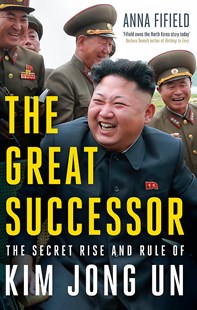North Korea has continuously been in the news in recent years, posing a greater threat than what had previously been a powerless hermit state. In The Great Successor, Anna Fifield tells of her journey to learn about how we got to 2020 with a nuclear-armed Democratic People’s Republic of Korea (DPRK) with a 35 year-old Kim Jong Un who has met the leaders of China and the United States, one-on-one. There already is a lot of praise for Fifield’s book – one shouldn’t be surprised given her background covering the Korean Peninsula. However, this review is specifically written for the military reader in mind: why does this book take former US national security advisor HR McMaster’s best book of 2019?
The story, which begins with an overview of the Korean War, and details the founding of the Kim dynasty, is woven together by a range of personalities that Fifield meets, or researches, through her own travel to Switzerland, Japan, American suburbia and, of course, Korea. Primary sources who grew up with, or knowing, Kim Jong Un, or those who have met with his closest family or senior cadre, piece together the biography of one of the world’s most mysterious leaders. Readers will virtually find themselves across the table from North Korean defectors, North Korean royal family members and former DPRK diplomats as Fifield brings those stories into a cohesive context for current events in North East Asia.
On one hand, the story is familiar for military readers: major events of the Korean Peninsula’s tensions are elaborated, leading up to last year’s summit talks (the book was published after the “no-deal” Hanoi summit of February 2019). The reader sees the strategic story of how the sports diplomacy of the Pyeongchang Olympics, along with political opportunities, led to the initial inter-Korean summit talks, and US-DPRK summit talks. On the other hand, the story urges the military reader to find out more for further context from experts in the field such as Su Mi Terry, and Victor Cha – a list of Korea watchers is listed in Fifield’s acknowledgements. The Great Successor is an incomplete story because it gives options for diplomats, military readers and policy analysts to rethink how we approach North Korea, if we know that Kim Jong Un is a rational actor with the goal of staying in power for as long as possible – the unwritten ending is up to us to share.
Fifield gives you the setting of Kim Jong Un’s life growing up, the stark contrasts of privilege versus persecution in North Korea, and the improved lives for defectors who still fear retribution from the regime. She highlights the Swiss school where Kim attended, posing as the son of a diplomat, and focuses on the lives of key figures that have been killed by Kim’s orders, as well as the intriguing reasons that brought Dennis Rodman and Kim Jong Un together.
The book questions if Chairman Kim remembers European history lessons, and classes based on Western ethics, as he consolidated power and purged officials. It leaves the military reader wanting to know more about how he might play this dangerous game in the 2020’s: as the leader of the DPRK, armed with nuclear weapons and advanced rocketry, what might Kim Jong Un want, and why is he playing hardball with American diplomats on denuclearisation?
Readers should bring their own questions to add to Fifields, especially those questions of opportunity cost: Why do we know more about the missile sites than Kim’s children, who will succeed him? How much longer does Kim want to stay in power, given he’s in poor health conditions in his mid-30s?
Washington Post Foreign Editor Douglas Jehl calls the book “the most complete portrait” of North Korea’s mysterious leader. He says that Fifield is the best in her field, of any language, to weave this together – we, the English-reading audience, reap the rewards of Fifield’s own translation, and those translators she’s employed for the book’s research. For this reason, the military reader should avoid simply reading the final chapters that table the strategic options, given Kim’s frame of mind. The easy-reading book is sequenced chronologically and you will enjoy learning about the Kim royal family from its conception, matched on a timeline with major geopolitical events and their actors.
The book’s climax is, in my opinion, the ending – Fifield wraps up the fruitless Hanoi summit in an epilogue that demands the reader to know more. Specifically, as a military reader, you cannot be unmoved nor unopinionated: denuclearisation, as a top priority, simply doesn’t make sense if serious progress is to be made, and that President Moon’s policy of the South Korean government is the alternative that seems to have made better progress with Kim Jong Un.
Jacob Choi is an Army logistics officer, having served at first, second and third line logistic units. He is a winner of the 2018 Defence Entrepreneur’s Forum and is an active voice in the discussion of future warfighting concepts and capabilities. Jacob is a member of Grounded Curiosity and can be followed on twitter @choisheungkay

